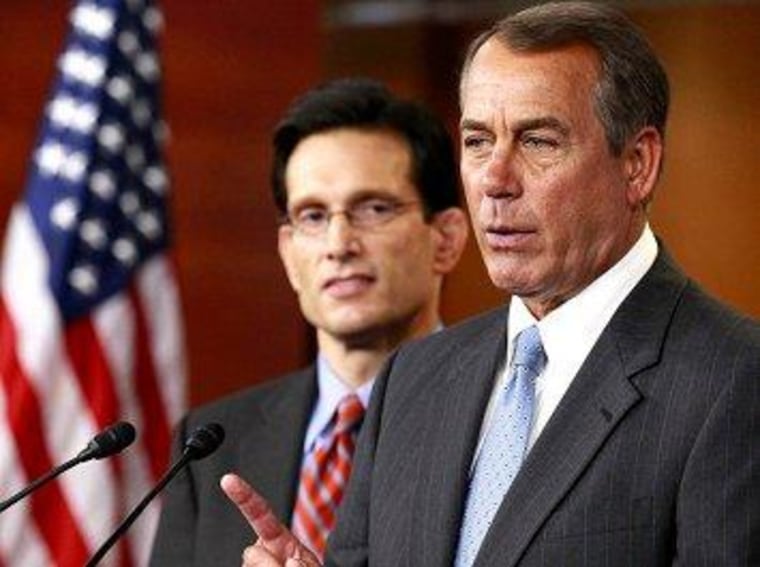House Majority Leader Eric Cantor (R-Va.) told Luke Russert this morning that job creation remains his party's "number one priority." House Speaker John Boehner (R-Ohio) told George Stephanopoulos the same thing yesterday
STEPHANOPOULOS: You know, we asked our viewers for questions for you. And so many came in on the same exact theme. Where are the jobs? What is this Congress doing for jobs?BOEHNER: Well, that's interesting, George. Because it really is our number one priority.
It's really not. In fact, a few seconds after making the comment, Boehner changed the subject to "dealing with our looming debt crisis" and complaining about "Obamacare." What's more, the House Republican leadership has been in the majority for nearly three years, and hasn't passed any jobs bills at all in that time, suggesting they've had quite a bit of trouble remembering their "number one priority." Maybe they're too busy feeling distracted by anti-abortion bills they know they can't pass.
But if Boehner and Cantor are serious, they could prove their commitment to the issue fairly easily: they should cancel the sequestration cuts that are holding back economic growth.
Indeed, wouldn't that be the first thing policymakers who look at jobs as their "number one priority" would do? The non-partisan Congressional Budget Office expects the sequester to cost the nation 750,000 jobs this year -- and if Congress cancels the policy, those jobs are saved.
But we can't turn the sequestration policy off, Boehner and Cantor say, because they're reducing the deficit. Maybe, maybe not. But either way, it's an unsatisfying answer -- either jobs are your number one priority or they're not. If a policymaker cares more about the deficit than jobs, than he or she can explain why, but there's a problem when a party says jobs are its top priority, only to embrace a policy that makes unemployment worse on purpose.
